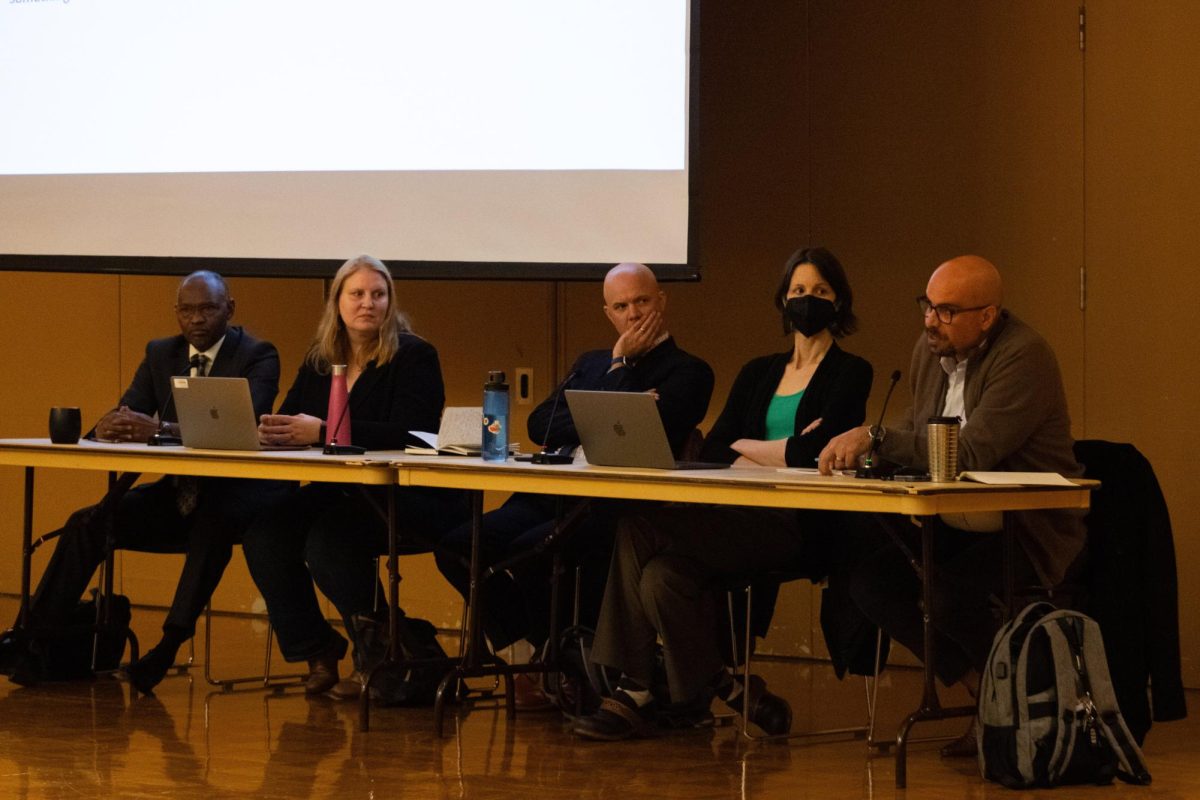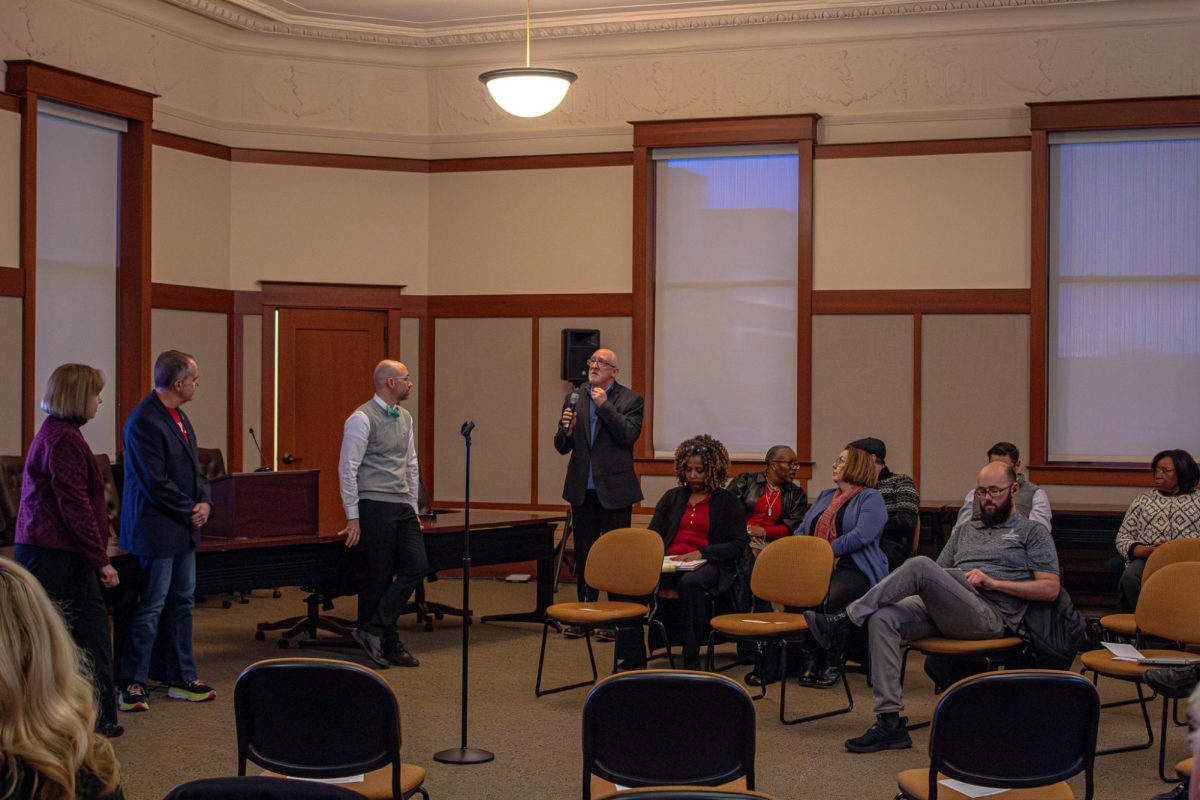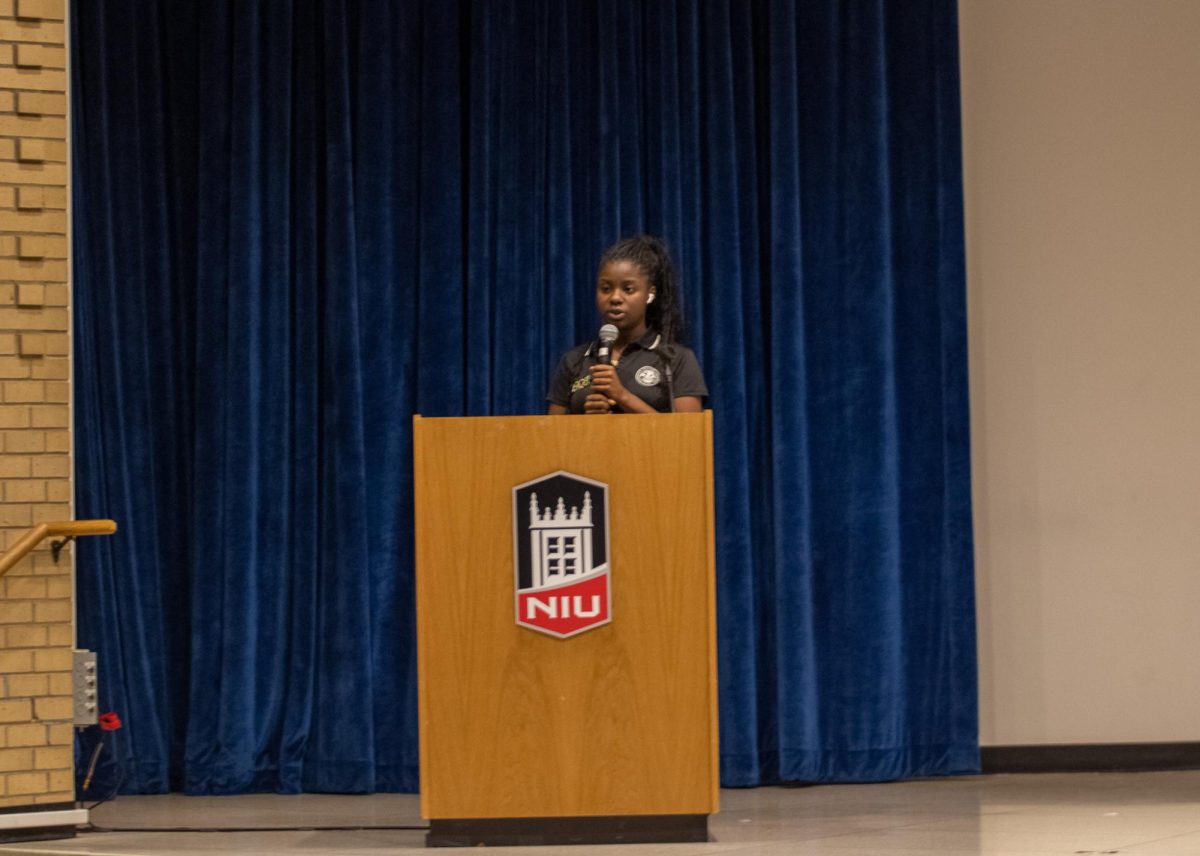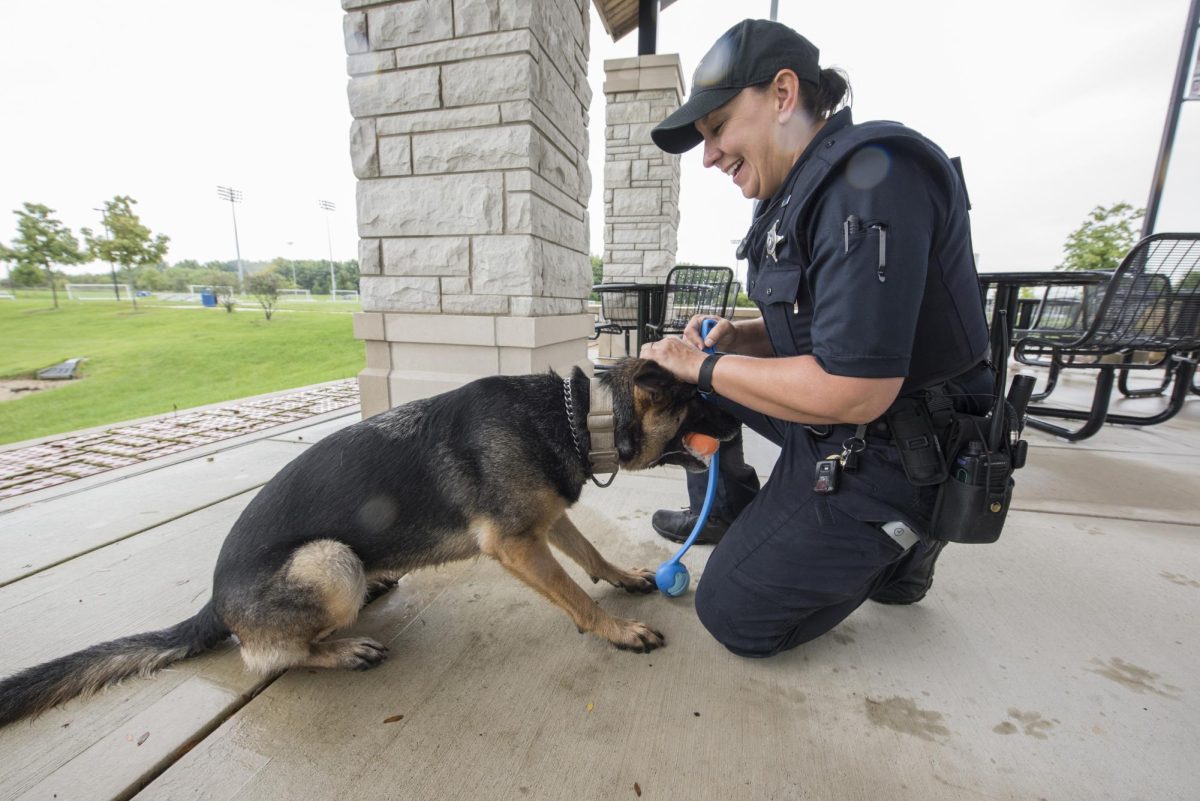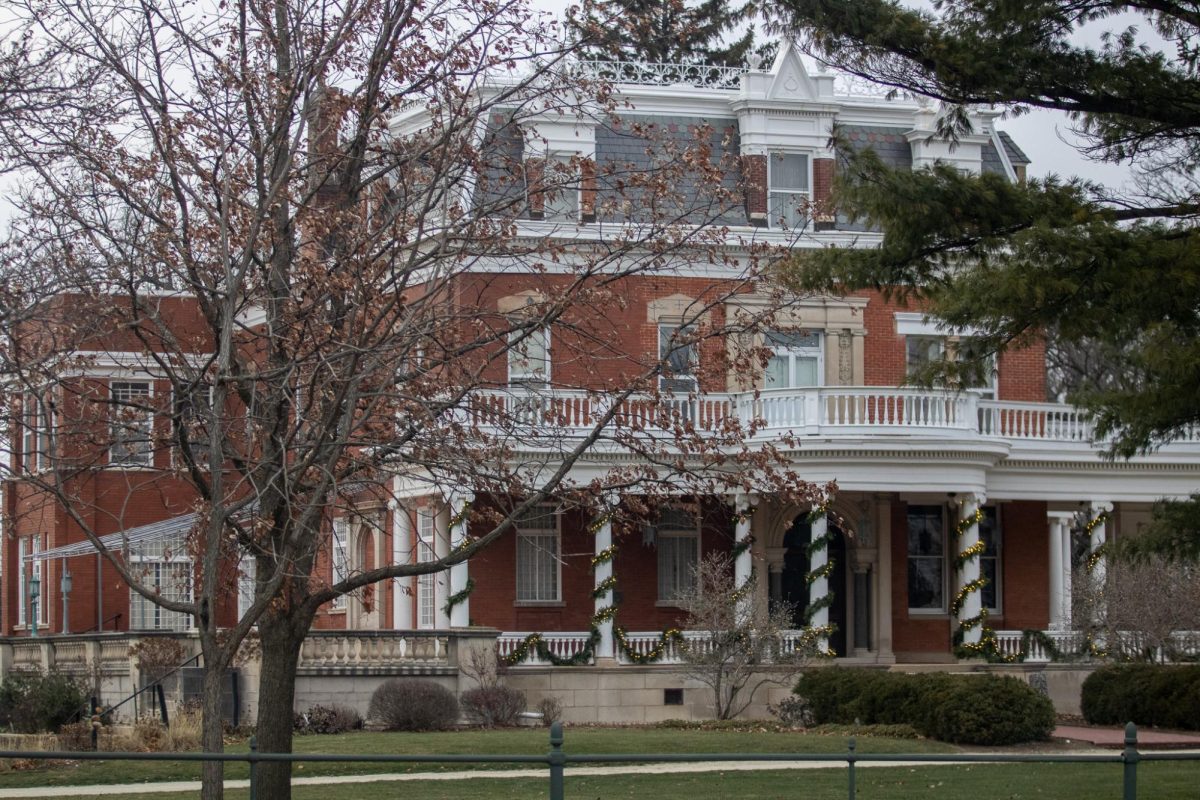DeKALB – In the midst of the war between Israel and Hamas, NIU experts came together in a panel to discuss the implications of the ongoing conflict in the Middle East.
TWO-STATE SOLUTION
“I think the United States is the only state that can influence Israel to push for a two-state solution,” said Nader Alghoul, a Ph.D. candidate at NIU.
The panel discussed possible solutions to the conflict.
Emily McKee, an associate professor of anthropology, said, although the U.S. does have a hand in determining the outcome of the conflict, the issues in regard to land will matter as well.
“So, the fact that settlements have been expanded immensely in the West Bank, and that the Jewish Israeli population there has been very interwoven with land that belongs to Palestinians and where Palestinians live, has made a two-state solution immensely more difficult over the years,” McKee said.
McKee said ideas of a one-state solution have also sprung up.
“There are also increasing voices talking about a one-state solution – some sort of a bi-national entity – now, that threatens, on a Zionist stance in the sense of Israel as a Jewish state because of demographic questions,” McKee said. “And it threatens on a Palestinian side a sense of having a real self-determination because of the current balance of power.”
Ches Thurber, an associate professor of political science at NIU, said Hamas does not want a two-state solution.
“Hamas specifically rejects the two-state solution; in fact, it’s kind of the founding definitional principle,” Thurber said.
Thurber said Hamas may be willing to negotiate once they have eliminated the Palestine Liberation Organization and Fatah, other Palestinian political factions, who are willing to negotiate with Israel.
HUMANITARIAN CRISIS
Laura Heideman, an associate professor of sociology, said hospitals in Gaza are entering a “primitive medical environment” due to a lack of power, fuel and anesthesia due to Israel’s blockade.
“Hospitals are getting into a situation where, if you are injured and you need to be operated on, the operating room might not have electricity, might not have lights, you might not have the oxygen compression machines working that allow you to receive higher doses of oxygen,” Heideman said.
Facilities run by the U.N. to help displaced Palestinians have also been facing overcrowding issues. 1.5 million Palestinians have been displaced, Heideman said.
“They are unable to accommodate new arrivals in those facilities. They’ve run out of space,” Heideman said. “And at the most overcrowded facility, we associate over 22,000 people, each person has less than 2 square meters of space in that facility, and each toilet is shared by 600 people.”
McKee said 90% of water in Gaza is unfit for human consumption.
“The other side of it, as as my colleague Dr. McKee pointed out, is that when you lack access to clean water, you get into situations where the spreading of waterborne illnesses, things like cholera and typhoid, become not just possibilities, but probabilities,” Heideman said.
DEATH DUE TO WAR
“From Israelis, I’ve heard horror and heard shock and heard upheaval and a sense of a total paradigm shift in response to attacks,” McKee said. “From Palestinians, I’ve actually heard much less as a shock about Israel’s bombings of Gaza. More often I hear sorrow, I hear weariness. I hear a sense of repetition, escalation, but also the sense of repetition.”
On Oct. 7, Hamas killed 1,400 Israelis during a surprise attack. Since then, 10,500 Palestinians have been killed due to the Israeli campaign to eliminate Hamas, according to AP.
“The biggest number of casualties, women and children combined, are about 67% of the casualties of 10,000 people. So, we are talking about 6,000-7,000 people,” Alghoul said.
Although many have died, Thurber said he believes the Israeli campaign will push on until it has completed its objective.
“After October 7, the only solution for them (Israel) to this problem is to completely eliminate the organization, Hamas,” Thurber said. “And I think that’s what they were trying to do. First, with a bombing campaign to take out targets, limit their vulnerabilities and now to move in with a ground invasion, which is going to be an effort, I believe, on their part to eliminate Hamas as close to completely as they can.”
WHAT IS TO COME?
Thurber said that a year from now the war may still be going on.
“I can see one version of events in which Israel is able to relatively quickly eliminate loss consistent with their goals,” Thurber said. “And then the question becomes ‘what happens to the governance of Gaza? Does Israel continue to occupy, do they hand over Gaza to the Palestinian authority, to some type of U.N. trusteeship?’ Other equally, if not more likely option, is that they get drawn into a protracted ground war in Gaza. That leaves them there fighting for many, many years.”
If Israel were to complete this objective, Thurber said Israel may continue with its occupation of Gaza.
“We saw the Prime Minister Binyamin Netanyahu float yesterday, the idea of some type of long-term occupation of Gaza by Israeli military,” Thurber said. “That would be the way that they would try to ensure that armed attacks couldn’t stem from Gaza to Israel anymore.”



